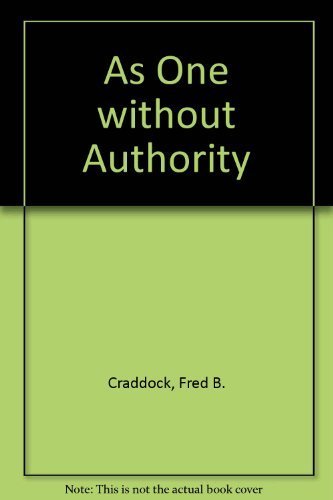What do you think?
Rate this book


Paperback
First published January 1, 1979
Craddock delves into a good bit of theory in As One Without Authority. One can become bogged down in that theory, but to the reader who stays the course and finishes the book, he or she is rewarded with a refreshing outlook on preaching.